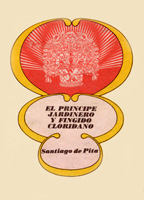5.5 Santiago Antonio Pita y Borroto. First Cuban playwright (1604 – 1755).

Santiago Antonio Pita y Borroto, considered Cuba’s first playwright, was born in 1694 in Havana. He is a descendant of two of the city’s oldest and most prominent families: Pita de Figueroa and Pérez Borroto y Recio.
He married Catalina María de Hoces y Córdoba in the Major Parish of Havana, in May 1719. He worked as captain of one of the companies of the Havana Militia Battalion.
It is recorded in legal documents that Santiago Pita maintained his residence in Havana between 1731 and 1735.
In late May or early June 1742, he left his hometown to serve as a guide for a company of the Spanish Militia Battalion, part of an expedition fighting against the English enemy in the English possessions of New Georgia. Months later, in August of the same year, he returned to his homeland with his troops.
Santiago Antonio Pita y Borroto, according to the City Council’s Minutes, was elected Ordinary Mayor of the City of San Cristóbal de La Habana on January 1, 1743, where he was already a councilor. The following year, he was appointed procurator for the poor.
His play, “The Gardener and Pretend Prince Cloridano,” is the first Cuban play written on the island. This comedy was published in Seville between 1730 and 1733. For years, it was attributed to the friar José Rodríguez Ucres, known as Capacho. This play is his only known literary work, considered by critics to be significant within the Cuban and foreign panorama of its time. It also marked the debut of the choteo (slang for “choteo”) on the Cuban popular scene.
The piece reveals that Pita y Borroto was a man of considerable culture for his time; with knowledge of various subjects such as dramaturgy, he would have been familiar with Latin, theology, ancient history, Greek and Roman legends, geography, and literature, especially Spanish and Italian.
Santiago Antonio Pita y Borroto died in 1755 and was buried in the Convent of Santo Domingo. The Prince, Gardener and Pretender, Cloridano was the work that launched theater as a literary genre in Cuba, since until its appearance, theater in Cuba had apparently been limited to stage performances.








